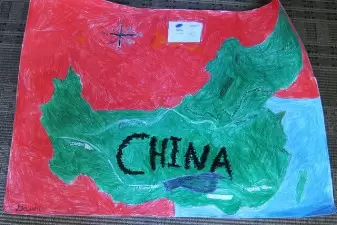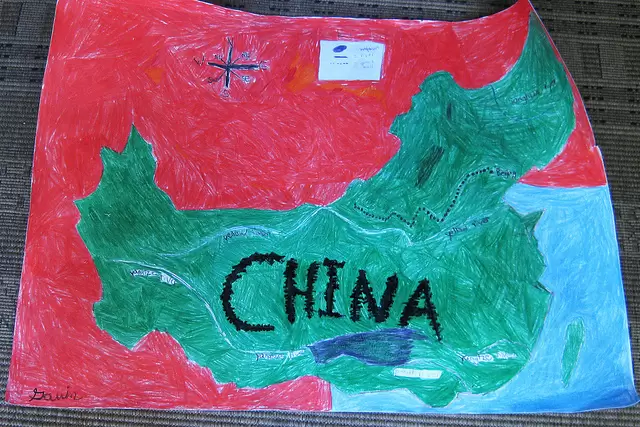If you believe conventional wisdom (the same “wisdom” that didn’t predict the housing bubble bursting or the Great Recession) then some of the safest places to put your money are savings accounts, US Savings Bonds, CD, Treasury Bills or Treasury Bonds.
The problem with conventional wisdom is that all these investments are only safe if the dollar is safe. If we enter a period of hyperinflation these investments are about the worst places your money could be. If the US government defaults and interest rates skyrocket while your money is tied up in a CD or Treasury Bond, you’re screwed.
If America is solvent then these investments are exceptionally safe. But what if you’re worried about America’s solvency?
These are the worst places to put your money in my opinion. Your reward potential is very low (0-5% gains not adjusted for inflation) because they are deemed as “safe” investments, but your risk is extraordinarily high due to the unstable US government and economy.
American stocks aren’t much better. Of course stock prices are going to rise during a period of hyperinflation, but they aren’t going to keep up with inflation. The hyperinflation will mean American consumers can’t afford higher prices, companies can’t sell their goods and services and it’s a huge mess.
My idea of “safe” investments are stocks in emerging markets.
Stuff Trumps Money
America has a massive trade deficit right now. We borrow money from China to pay for our imports because we don’t produce enough things here in America. Now imagine China (and everyone else) stops lending us money because our debt is too high and we are too risky of an investment.

Now we don’t have the money to import the goods that we want/need, and we don’t produce enough things here in America to meet the demand. That means we have a lot of people and not a lot of stuff for those people. That’s not good. We all know that real wealth is not dollars or euros or yen; it’s stuff that people want or need.
Now let’s look at a country like China. Let’s pretend America doesn’t have any money and can’t import Chinese goods. It sucks to some extent for China, but that just means Chinese companies will have to sell their stuff to Chinese citizens. And since all the stuff that used to be exported is now being sold in China, they will actually have a surplus of goods which will make prices go down.
Both America and China would be hit hard with an American Government bubble bursting, but America would see prices soar and empty store shelves while China would see overflowing store shelves and a drop in prices. It’s not hard to tell which one is more desirable.
Invest in Companies Based in Countries With Trade Surpluses
What’s more valuable: a company that went out of business because they couldn’t get raw materials or a company with warehouses full of goods that will be sold, albeit at lower prices than anticipated?
The company with goods and consumers beats the company with no goods and no consumers every time.
It’s also smart to avoid companies that offer services instead of raw materials. Some companies offer Storage Container Repairs in Port Container Services, but that company is going to have a hard time doing business when people are no longer shipping goods across the ocean.
Peter Schiff says it much better than I can in his book The Real Crash:
So elsewhere in the world there are more creditors than debtors, and there is pent-up demand and excess production. In the future, these economies will see a surge in demand, while ours will see demand fall.
You want to be invested in businesses whose customers will be richer in the future. That is, you want to be investing today where people are saving and producing, so that tomorrow, when they’re ready to spend, you’re getting some of that money.
It makes so much sense it’s hard to believe this is the “crazy logic” and buying US treasury bonds is the “safe bet”.
Peter Schiff recommends buying dividend paying stocks in the following countries: Australia, Singapore, Hong Kong, New Zealand, Switzerland, Norway, The Netherlands, Canada, and China.
How Do I Buy Dividend Paying Stocks in Emerging Market Countries?
I’ve done a little research and I’ve found a few ETFs that seem to do a good job of diversifying investments in a broad range of countries. My favorite is the Asia/Pacific Dividend 30 Index Fund (DVYA) which does a darn good job of following Peter Schiff’s advice. 92% of the holdings in this ETF are dividend paying companies in Australia, Singapore, China, Hong Kong, and New Zealand.
This is just one of many investment options to get involved in strong emerging market companies that pay dividends. My recommendation is to put at least 20% of your assets in this type of investment.
Let’s pretend I’m right and the American Government bubble does burst at some point in the next few years: this investment will almost surely beat any group of American companies.
But what if I’m wrong and the American Government bubble doesn’t even exist? Then you just have a little more exposure to emerging markets than “experts” suggest, but you still might end up ahead because emerging markets have higher upside than American companies anyway.
High upside and low downside in emerging markets: that’s what I call a “safe” investment. Low upside and high downside in American Treasury Bills, Bonds, and publicly traded companies: that’s what the “experts” call “safe”.
Readers: How much of your portfolio is in emerging markets? Are you planning to increase that percentage any time soon?
Kevin McKee is an entrepreneur, IT guru, and personal finance leader. In addition to his writing, Kevin is the head of IT at Buildingstars, Co-Founder of Padmission, and organizer of Laravel STL. He is also the creator of www.contributetoopensource.com. When he’s not working, Kevin enjoys podcasting about movies and spending time with his wife and four children. Lastly, Kevin holds a B.A. in Mathematics and a B.S. in Electrical Engineering.








Australia, New Zealand, Switzerland, Norway, The Netherlands, and Canada are considered Emerging Markets?? Erm… Not so much.
You’re right, those aren’t really “emerging markets”. I don’t really know how to classify them except “countries with trade surpluses”.
What about “countries with trade surpluses”? 😀
You might also want to look into some other G20 countries, e.g. Brazil, Russia, India, South Africa, Argentina or Turkey. They are maybe a bit more risky, but their economies are growing faster than elsewhere.
They would be classified as international, while countries such as BRIC (Brazil Russia India China) would be classified as emerging markets.
Only about $5 trillion (yes only $5,000,000,000,000.00) is held by foreign countries. China and Japan hold about 1/5th of that each. I think the rest of the debt is U.S. citizens.
Also, it would be wise to look into the governing style of each country. I would really never invest in Russia. People could really make a lot of money there, but I don’t trust their political system. I really don’t know how stable they are half the time. The U.S. is on a slow decline but in some countries it isn’t unrealistic for the entire country/market to be turned upside down and inside out in an hour.
I’m going to look into that index fund. I’ve been looking for a unique place to put some money. That seems like it could be interesting to say the least.
Also, I would stay away from The Netherlands (member of the EU).
While I agree that there are some good opportunities overseas, I just can’t invest in China. There are so many scam companies over there that you just can’t know which ones are the ones you should invest in. Of course if you buy into a ETF or MF you will be diversified which would be the only way I could invest in China.
I agree with a couple of the premises, namely: savings bonds are not as safe as people think, investing some in emerging markets is wise, investing in those with trade surpluses is wise.
Investment risk is much more worthwhile concept for a portfolio (not individual assets). http://investing.curiouscatblog.net/2011/02/24/investment-risk-matters-most-as-part-of-a-portfolio-rather-than-in-isolation/ The riskiness of an asset for an investor is very related to what other assets they own. If you own 90% of your portfolio in long term US government bonds, thinking that putting the lat 10% in them is not risky is foolish.
I agree with your conclusion. In fact in my recent book I predict that individual American invement in emerging and other markets will be the next google. The key in unrepatriation of profits until US political climate changes.
Nice information !!! In the current time the US & China economic data are pushing the market in the selling pressure side.Hope We will get rid of this situation soon.
%image_title% is the perfect! mini credit